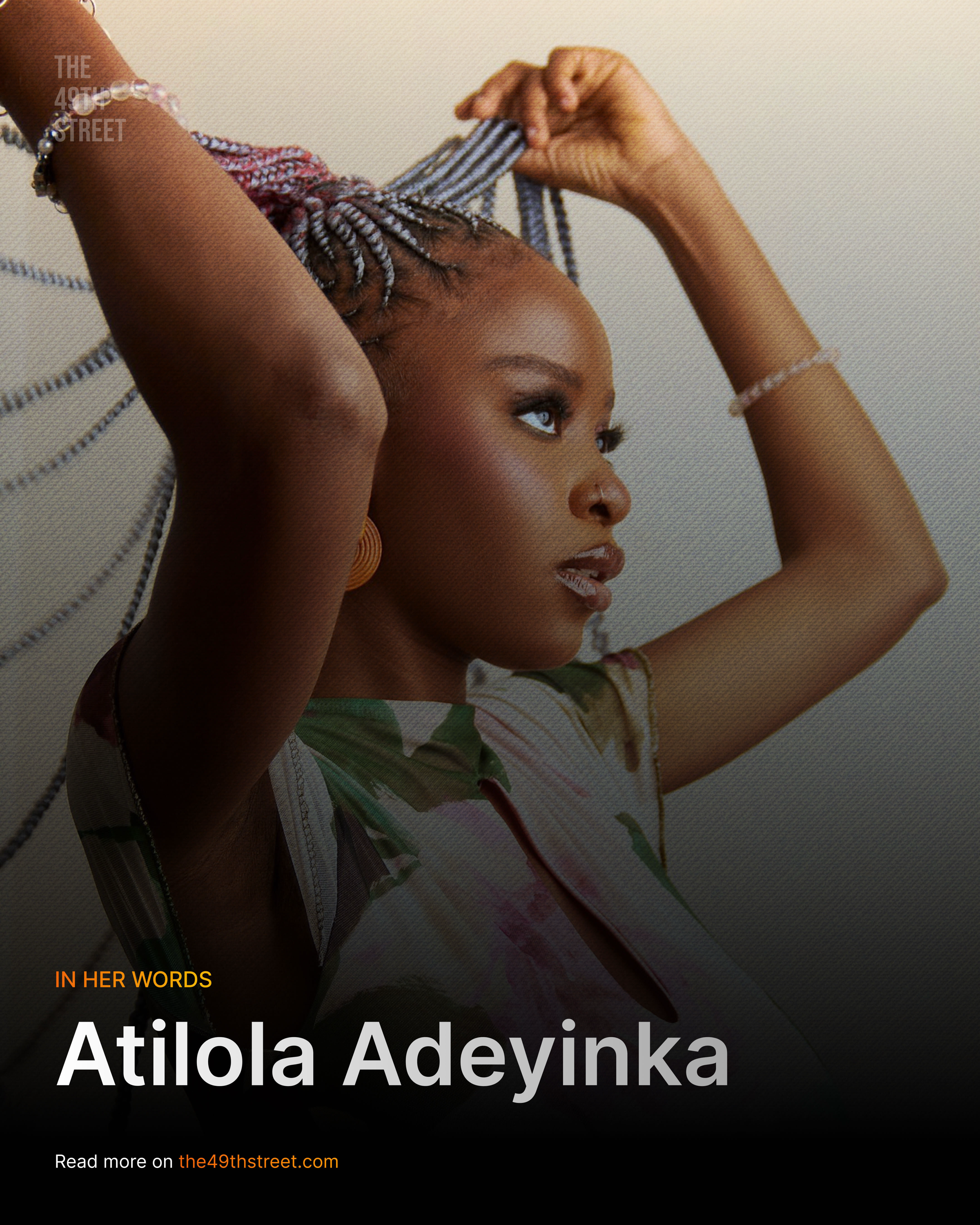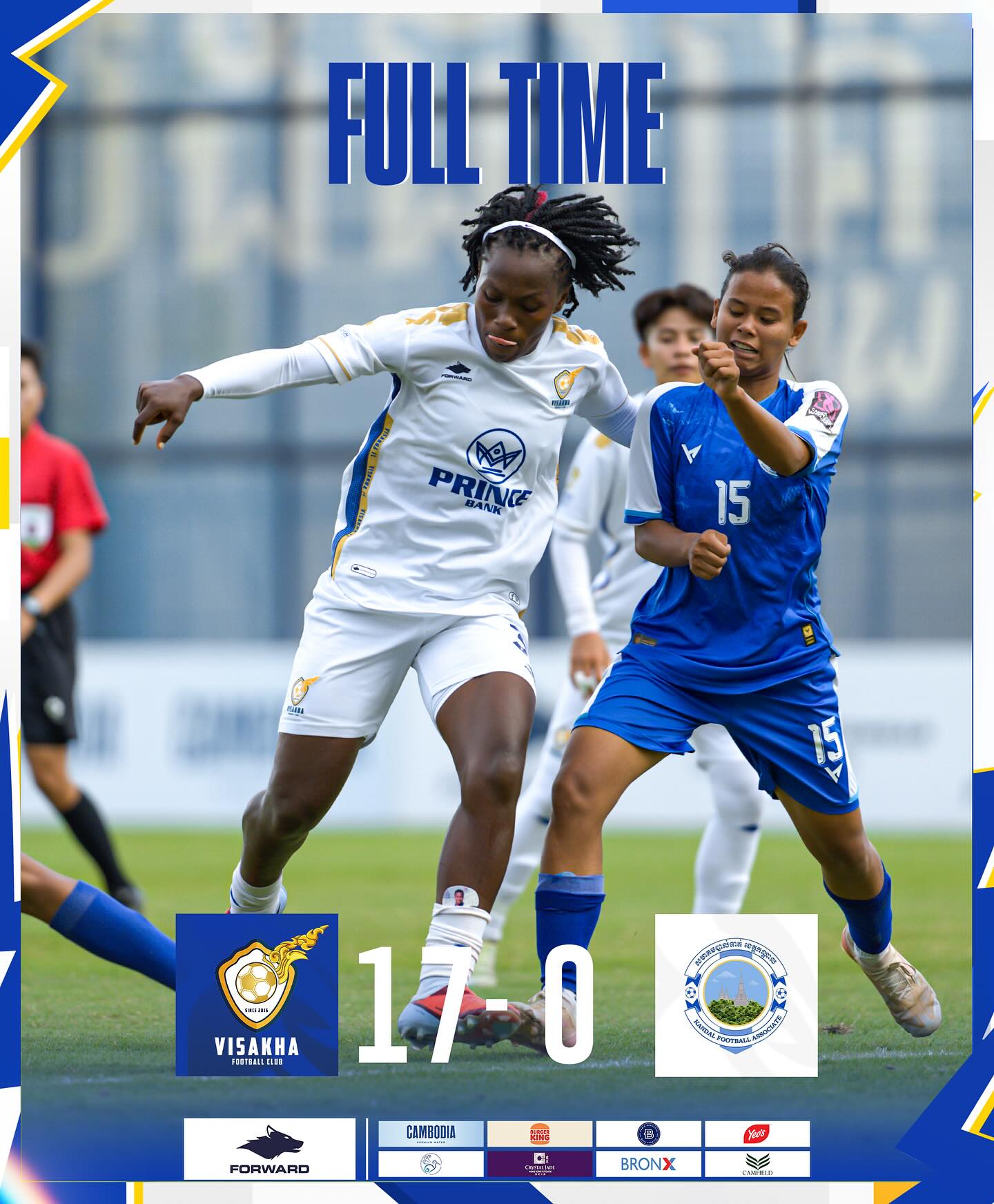By Sophia Afolayan
In a country where patriarchal norms often silence women’s voices, Atilola Adeyinka is choosing to be loud. As the founder of Siren, a growing feminist community born out of a simple WhatsApp group in 2020, Atilola has created a powerful platform for Nigerian women to connect, speak freely, and advocate for justice. Her work merges digital activism with on-the-ground engagement, challenging both culture and complacency. In this conversation, she shares the personal roots of her feminism, the evolution of her advocacy, and the bold vision she holds for a future where women everywhere feel seen, safe, and supported.
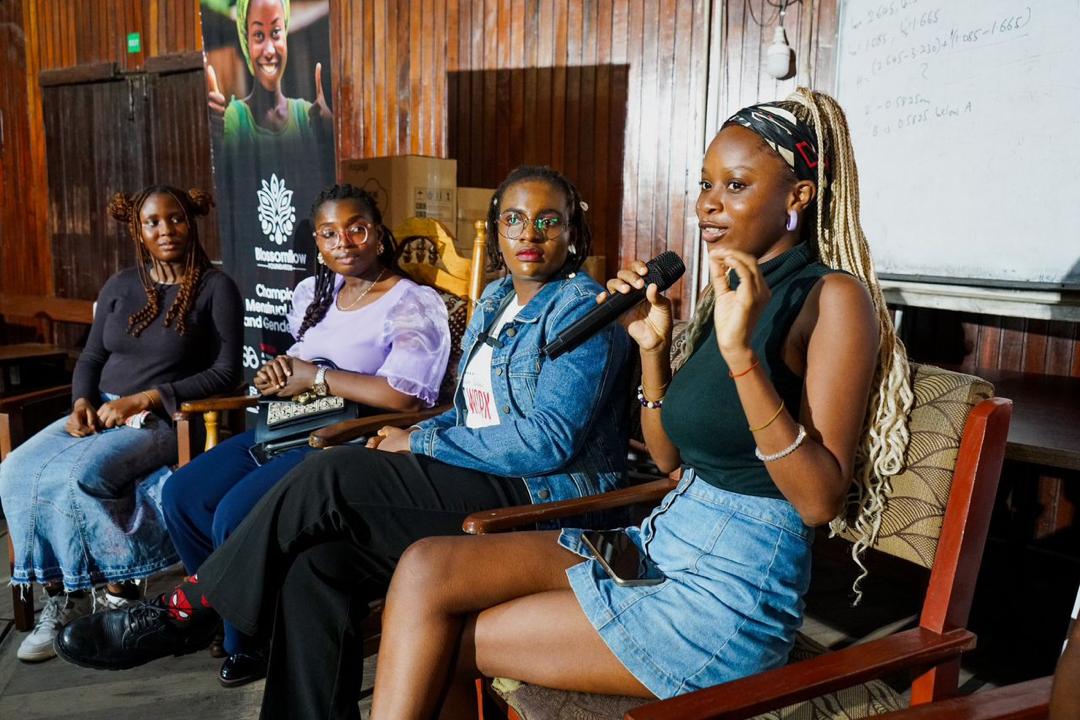
What inspired you to create Siren, and how has its mission evolved since its inception in 2020?
Atilola Adeyinka: Honestly, it’s as simple as I wanted to create a space where girls and women could bond and just yap without worrying about their privacy being invaded by men. Now, Siren is still a safe space for women, not just one that exists on a WhatsApp group chat but as an online community creating safe spaces in all forms.
Can you share a pivotal moment in your activism journey that significantly influenced your approach to women’s rights advocacy?
Atilola Adeyinka: I don’t think that there has particularly been any moments where I wasn’t this way about women’s rights but the story of the young girl that was raped in church, Uwa radicalized me.
How do you perceive the role of social media platforms like X in amplifying feminist discourse and mobilizing support for women’s rights in Nigeria and across Africa?
Atilola Adeyinka: One thing that I always advocate for is being loud on social media about your activism, people will tell you that you are just making noise and it’s not doing anything but I promise you. It’s doing a lot, much more than you can imagine. Women have been able to achieve so much justice and change so much from their phones.
Can you discuss the significance of organizing events like the walk against sexual assault across multiple Nigerian states and their impact on public awareness and policy?
Atilola Adeyinka: So, as much as I advocate for activism online, I also advocate for what I like to call touching grass advocacy. We (the feminists online) can be such an echo chamber, a very loud bunch, so much so that you assume that the work you are doing is spreading across but then you go out and speak to other women, and you realize, there are so many women and people who are not informed about these things, having walks helps us to connect with and educate those women. It’s important to carry along the women who do not have the access to online information that we do.
What are your aspirations for the future of feminist movements in Nigeria and Africa, and how do you envision Siren contributing to this progress?
Atilola Adeyinka: Hmm, to be honest, I just want us to get to a point where there are 9 out of 10 women in a room who are feminists; now it’s always 2 out of 10 women who are feminists. It’s a sad number and my intention is to spread the message of feminism and the importance of it. Siren is constantly having walks, spaces, building communities just so we can discuss these things and I hope we are able to reach multitudes.
How has your personal upbringing, particularly being raised in a family without traditional gender roles, shaped your feminist beliefs and activism?
Atilola Adeyinka: I love this question. My upbringing influenced a major part of my beliefs, and it’s always so interesting to me when I hear stories of dynamics that I truly cannot relate to. I grew up in a home where my brother cooks really well, we both share chores and the likes, so when people list out gender roles it’s not something I understand. I didn’t grow that way so it is not something I align with.
In what ways has leading Siren impacted your personal life, and how do you navigate potential challenges arising from your public advocacy?
Atilola Adeyinka: The requests can get crazy. The thing with being the face of an NGO is people think you created it because you have your life figured out, so they come to you for everything. Sometimes, I have to remind people that I’m really just in my early 20s, and I cannot fix a lot of the things I am asked to.
For me, I have navigated a lot of the challenges by setting boundaries, I cannot pour from an empty cup, if I can’t do it, I simply don’t and I put that energy into how Siren is run, we can and will take breaks when we can’t do it and we can and will say no if we don’t want to do it.
Can you share experiences where your identity as a young Nigerian woman has both challenged and empowered your activism efforts?
Atilola Adeyinka: Nigeria is a largely misogynistic country. Sometimes, people get so baffled when I am introduced as the founder of Siren, and I’ve also been asked, “Who is funding me?” It’s interesting (derogatory), but also, Nigerian women? We achieve. Women have been so kind and supportive, financially and in a lot of other ways.
What’s a fun or unexpected way you like to unwind after a long day of activism and advocacy?
Atilola Adeyinka: I read or watch Korean and Chinese dramas, or I yap with my friends.
When you’re not conquering the world at Siren, what else do you do?
Atilola Adeyinka: Writing, running my two businesses, and being a lover girl.
In your view, how does contemporary Nigerian pop culture influence societal perceptions of feminism, and how does your work with Siren engage with or challenge these cultural narratives?
Again, Nigerian society is a very misogynistic one, and it spills heavily into the forms of media that are put out. The music is misogynistic, often portraying women as “gold diggers” or “sex workers” the movies will sometimes advocate for women to go back to abusive marriages, there are also movies that paint sexual abuse and assault as karma or punishment for bad behavior, when the media consumption of the average Nigeria is centered around these things, it makes an impact on how people view feminism as something trying to break the cultural norm of the society and something evil that’s against the misogynistic society.
For Siren, we try to host as many outreaches or just simple reaches to ensure that these women know better. When we get requests from women in these situations, DV/SA and the likes, we not only help them but also educate them on their rights and the misinformation that the media has spread.
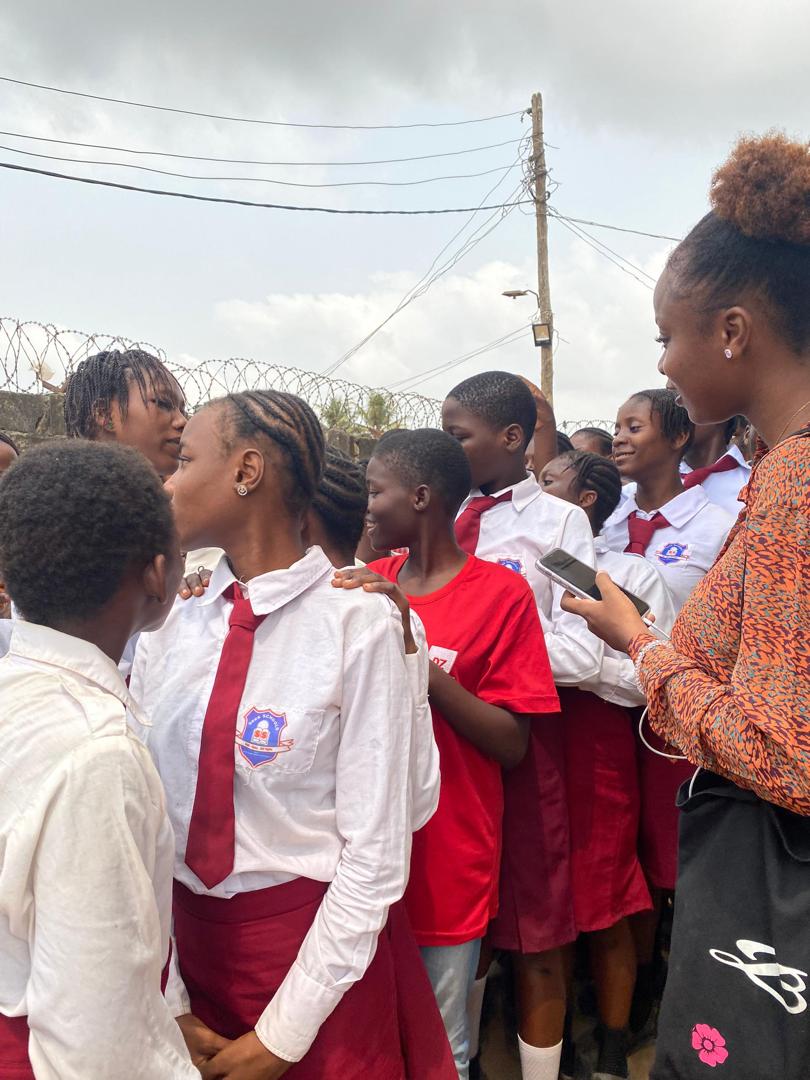
If you could have dinner with any three women in history—activists, artists, or pop culture icons—who would they be and why?
Atilola Adeyinka: Funmilayo Ransome Kuti, I need her advice on how to get women to work together to reach a common goal. Beyoncé because I truly need a one on one with her on how she’s built such a beautiful career. Ijeoma Umebinyuo because her book, Questions for Ada strengthened my feminism.
What’s one book, movie, or song that perfectly captures your journey with Siren or your personal views on feminism?
Atilola Adeyinka: Paloma Faith’s Labour and Questions for Ada by Ijeoma Umebinyuo
If you had to describe the impact of Siren in a single viral tweet, what would it say?
Atilola Adeyinka: I actually do not think I can describe the impact we’ve had in one tweet.
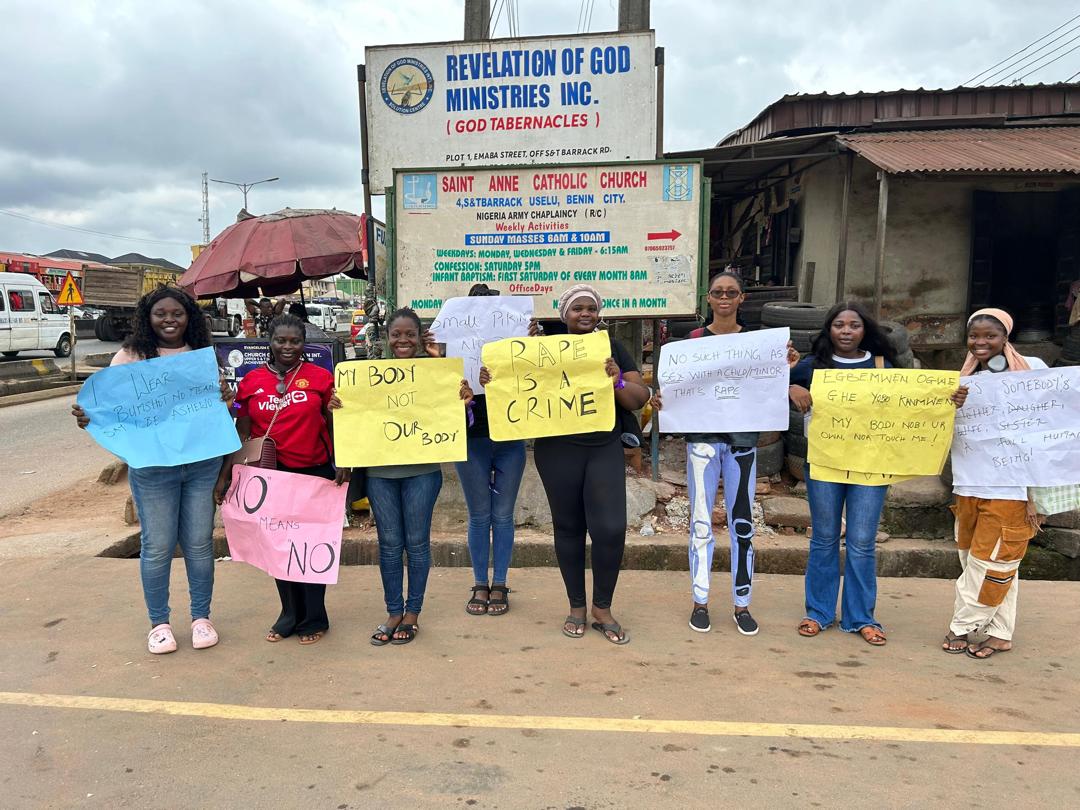
What’s one misconception about feminism in Nigeria that you wish more people understood?
Atilola Adeyinka: None. I do not need to explain any part of my activism to anyone. This is not a democracy; I don’t care enough.
At the end of the day, Atilola is just a young woman who saw a gap and decided to fill it with heart, honesty, and hustle. Siren isn’t just a community; it’s a movement rooted in realness, sisterhood, and the belief that every woman deserves to feel safe and heard. Her commitment to creating safe spaces, both online and offline, is reshaping how feminist advocacy looks in Nigeria. As the movement grows, one thing remains clear: this isn’t just about making change, not just noise.
And Atilola is helping lead that charge, one conversation, one walk, and one community at a time.

